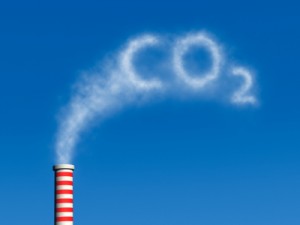 A surprising but frustrating obstacle to carbon tax progress has been opinion polling. It took years for pollsters to even ask about a carbon tax rather than (or in addition to) cap-and-trade proposals. Even when that changed, little or no context was provided about possible uses of the revenues. Asking “do you support a carbon tax?” without at least hinting at possible revenue uses was akin to asking “Where should we land this punch?”
A surprising but frustrating obstacle to carbon tax progress has been opinion polling. It took years for pollsters to even ask about a carbon tax rather than (or in addition to) cap-and-trade proposals. Even when that changed, little or no context was provided about possible uses of the revenues. Asking “do you support a carbon tax?” without at least hinting at possible revenue uses was akin to asking “Where should we land this punch?”
A revenue-neutral carbon tax, in which all tax revenue would be returned to the public as a rebate check [“dividend”], receives 56% support. The largest gains in support [relative to opinion on a carbon tax w/o revenue mention] come from Republicans.
Happily, a poll released yesterday by researchers at the University of Michigan breaks the mold. Here’s their abstract:
Conventional wisdom holds that a carbon tax is a political non-starter. However, results from the latest version of the National Surveys on Energy and Environment (NSEE) provide evidence of substantial public support for a tax on the carbon content of different fossil fuels when specific uses of tax revenue are attached. A majority of respondents support a revenue-neutral carbon tax, and an even larger majority support a carbon tax with revenues used to fund research and development for renewable energy programs. The carbon tax coupled with renewable energy research earns majority support across all political categories, including a narrow majority of Republicans. These findings generally confirm previous NSEE results when revenue use options are linked to carbon taxation. These are among the latest findings from the Spring 2014 NSEE [National Survey on Energy and Environment] from the Center for Local, State, and Urban Policy at the University of Michigan and the Muhlenberg College Institute of Public Opinion. (Click here for source; emphases added.)
The Center’s press release on the new survey follows, printed in full.
FOR IMMEDIATE RELEASE — Public Views on a Carbon Tax Depend on the Proposed Use of Revenue, from the National Surveys on Energy and Environment (NSEE) / Press Release /July 21, 2014
Contacts: Professor Barry G. Rabe /J. Ira and Nicki Harris Professor of Public Policy / Director, Center for Local, State, and Urban Policy / Gerald R. Ford School of Public Policy / University of Michigan /brabe@umich.edu . Professor Christopher Borick / Director, Muhlenberg Institute of Public Opinion / Muhlenberg College / cborick@muhlenberg.edu
FOR IMMEDIATE RELEASE — A Public Views on a Carbon Tax Depend on the Proposed Use of Revenue
The National Surveys on Energy and Environment (NSEE) from the Center for Local, State, and Urban Policy (CLOSUP) at the University of Michigan’s Gerald R. Ford School of Public Policy, and the Institute of Public Opinion at Muhlenberg College finds evidence of substantial public support for a tax on the carbon content of different fossil fuels when specific uses of tax revenue are attached.
The authors of this report are the late David Amdur of Muhlenberg College, Barry Rabe of the University of Michigan, and Christopher Borick of Muhlenberg College.
The report’s key findings are summarized below, and the full report is available on the CLOSUP homepage: https://closup.umich.edu.
You can read or download the report from the website, or if you contact us at CLOSUP (email: closup@umich.edu) we will email an electronic version.
Key Findings:
- Most Americans oppose a carbon tax when the use of tax revenue is left unspecified. Overall support for such a tax is 34% in the latest NSEE survey. Attaching a specific cost to the carbon tax reduces overall support to 29%.
- A revenue-neutral carbon tax, in which all tax revenue would be returned to the public as a rebate check, receives 56% support. The largest gains in support come from Republicans.
- A carbon tax with revenues used to fund research and development for renewable energy programs receives 60% support, the highest among tax options that we presented. Majorities of Democrats, Republicans, and Independents each express support for this tax.
- Most respondents oppose a carbon tax with revenues used to reduce the federal budget deficit. Overall support for such a tax is 38% with a majority of Democrats, Republicans, and Independents each expressing opposition to this tax.
- When asked which use of revenue they prefer if a carbon tax were enacted, pluralities of Democrats, Republicans, and Independents each prefer renewable energy over tax rebate checks or deficit reduction.
More detailed information is available in the report.
The NSEE is a joint effort of the Center for Local, State, and Urban Policy (CLOSUP) at U-M’s Ford School of Public Policy and the Muhlenberg Institute of Public Opinion at Muhlenberg College in Allentown, PA. For more information, contact NSEE staff by email at closup@umich.edu. More information is also available on the CLOSUP website at: https://closup.umich.edu. Follow CLOSUP on twitter: @closup.